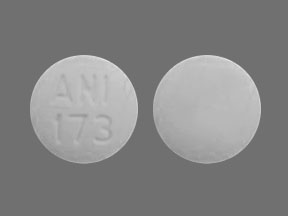Nilutamide Disease Interactions
There are 2 disease interactions with nilutamide.
Nilutamide (applies to nilutamide) hepatic dysfunction
Major Potential Hazard, High plausibility. Applicable conditions: Liver Disease
The use of nilutamide is contraindicated in patients with severe hepatic impairment. Patients with hepatic dysfunction may be at increased risk for nilutamide- associated hepatitis and marked increases in liver enzymes. Nilutamide is extensively metabolized by the liver and the metabolic activity and disposition of nilutamide may be altered in patients with severe hepatic impairment. Patients should be instructed to immediately report any sign or symptoms of hepatic dysfunction such as jaundice, dark urine, right upper quadrant pain, or anorexia. Clinical monitoring of hepatic function is recommended and nilutamide should be discontinued if liver transaminase levels increase two to three times the upper limit of normal.
Nilutamide (applies to nilutamide) interstitial pneumonitis
Major Potential Hazard, High plausibility.
The use of nilutamide is contraindicated in patients with severe respiratory impairment. Patients with pulmonary dysfunction may be at increased risk for nilutamide- associated interstitial pneumonitis. Patients should be instructed to immediately report any signs or symptoms of respiratory impairment such as dyspnea, cough, chest pain, or fever. Clinical monitoring of pulmonary function, including pre-treatment chest X-ray, is recommended.
Switch to professional interaction data
Nilutamide drug interactions
There are 271 drug interactions with nilutamide.
Nilutamide alcohol/food interactions
There is 1 alcohol/food interaction with nilutamide.
More about nilutamide
- nilutamide consumer information
- Check interactions
- Compare alternatives
- Drug images
- Side effects
- Dosage information
- During pregnancy
- Drug class: antiandrogens
- En español
Related treatment guides
Drug Interaction Classification
| Highly clinically significant. Avoid combinations; the risk of the interaction outweighs the benefit. | |
| Moderately clinically significant. Usually avoid combinations; use it only under special circumstances. | |
| Minimally clinically significant. Minimize risk; assess risk and consider an alternative drug, take steps to circumvent the interaction risk and/or institute a monitoring plan. | |
| No interaction information available. |
See also:
Further information
Always consult your healthcare provider to ensure the information displayed on this page applies to your personal circumstances.


